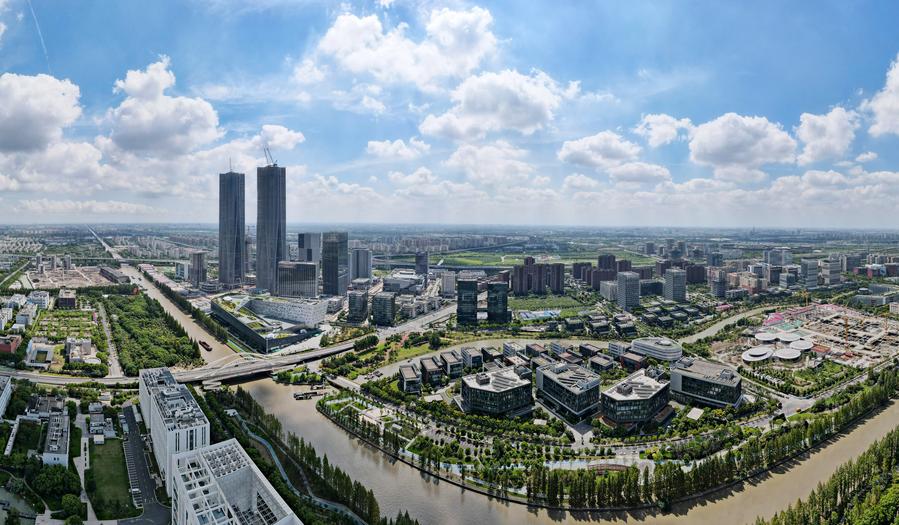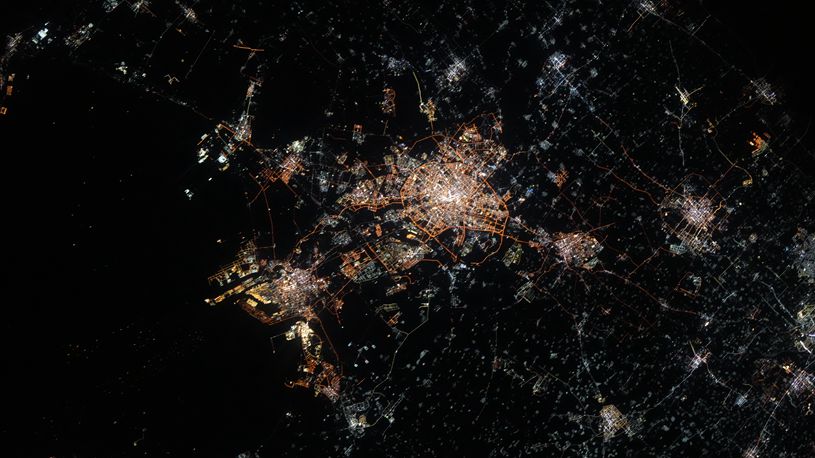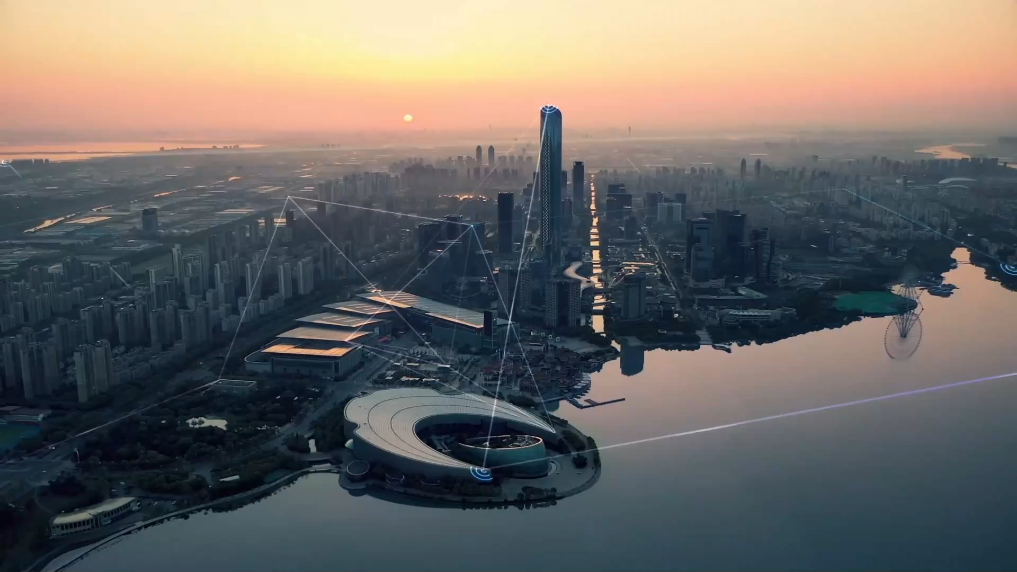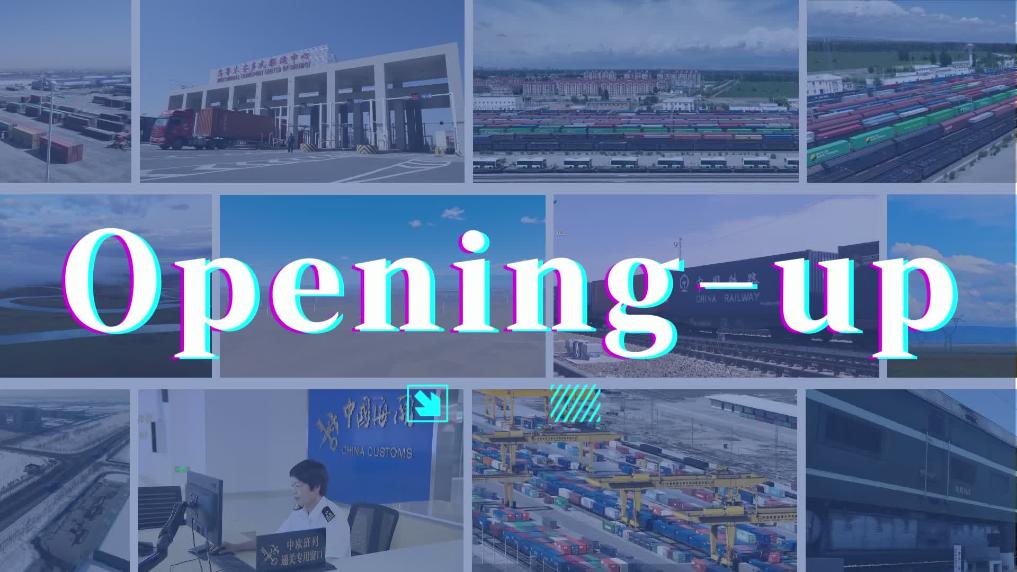China, the world's third-largest country by territory with a population of over 1.4 billion and a rich history, is home to a myriad of vibrant cities. From the political center of Beijing to the financial hub of Shanghai, the trade port of Guangzhou and the inland municipality of Chongqing, each city offers its unique characteristics.
BEIJING, April 16 (Xinhua) -- When foreign leaders plan visits to China, the destination of their first choice is not always the nation's capital, Beijing.
It might seem surprising at first glance, given Beijing's status as the political heart of China. However, it is understandable if the purpose of their visit, its political or cultural symbolic meanings, or the message they aim to convey are taken into account.
CHONGQING
The booming megacity of Chongqing in southwest China is famed for its mountainous terrain and fire-breathing hotpot. The Yangtze River winds its way through the city, painting a mesmerizing panorama.
German Chancellor Olaf Scholz arrived in Chongqing on Sunday morning to kick off his packed three-day visit. He then traveled to Shanghai on Monday and is scheduled to conclude his visit in Beijing on Tuesday.

The various fields in which China and Germany enjoy promising cooperation are believed to have played a major role in determining his itinerary.
As an economic engine in the inland region, Chongqing has a strong industrial base and has reshaped its industrial landscape through innovation.
Accompanied by a large delegation of ministers and business executives, Scholz visited Sino-German joint venture Bosch Hydrogen Powertrain Systems (Chongqing) Co., Ltd. and experienced the assembly of hydrogen fuel cell power modules.
He is impressed by the cooperation between German and Chinese enterprises in the field of hydrogen technology, and Germany is willing to continue to deepen friendly exchanges with China and push bilateral cooperation to a new level.
Chongqing has been actively expanding its capacity in hydrogen production, creating remarkable potential for bilateral cooperation in the area.
In December 2023, a major hydrogen supply center for vehicles in southwest China went operational in Chongqing.
As Germany faces challenges with its green energy push, it is expected that German automakers will take advantage of the visit to deepen collaboration with their Chinese peers, which have become leading global players in new energy vehicles, said Sun Yanhong, a senior research fellow at the Institute of European Studies of the Chinese Academy of Social Sciences.
Additionally, Chongqing serves as a pivotal hub for China-Europe freight trains. Observers said that Scholz's visit paves the way for future bilateral cooperation in infrastructure.
This year marks the 10th anniversary of the inauguration of the China-Europe freight train services in the German city of Duisburg.
Soren Link, mayor of Duisburg, said that the demand for logistics between China and Europe is still high, and Duisburg is willing to maintain and strengthen ties with China while endeavoring to foster greater connectivity between the two sides.
GUANGZHOU
Political and economic considerations also play a major role in foreign leaders' selection of cities, as exemplified by U.S. Treasury Secretary Janet Yellen's China trip earlier this month.
She commenced her journey in the southern city of Guangzhou, and then visited Beijing amid ongoing tensions surrounding U.S. economic and high-tech restrictions against China and the issue of production capacity.
According to Huo Jianguo, a vice chairman of the China Society for World Trade Organization Studies in Beijing, Yellen's decision to choose Guangzhou as her first stop indicates the "pragmatic" nature of the visit that focuses on commercial issues and businesses.
"Choosing Guangzhou as the first stop appears to be downplaying the official tone ... Yellen was more pragmatic during this trip and willing to have contacts with companies so as to create a more relaxed atmosphere," Huo said.
Yellen's Guangzhou trip drew widespread attention both within China and worldwide.
"Yellen's visit to China sent a positive signal, showing that China and the U.S. are willing to communicate," Huo said.
China, the world's third-largest country by territory with a population of over 1.4 billion and a rich history, is home to a myriad of vibrant cities.
From the political center of Beijing to the financial hub of Shanghai, the trade port of Guangzhou and the inland municipality of Chongqing, each city offers its unique characteristics.
By immersing themselves in different Chinese cities, foreign leaders can get firsthand experiences and develop a more comprehensive understanding of China's multifaceted geographical, economic and cultural landscape, thereby enabling them to refine their policy decisions and improve relations with China.■












